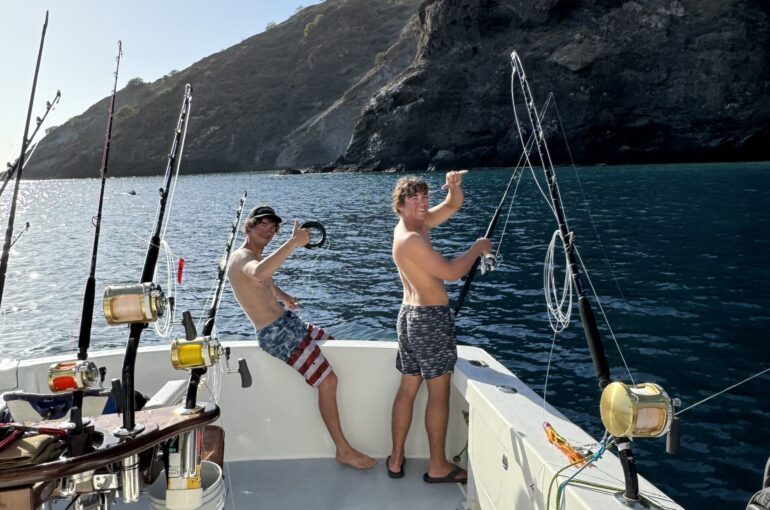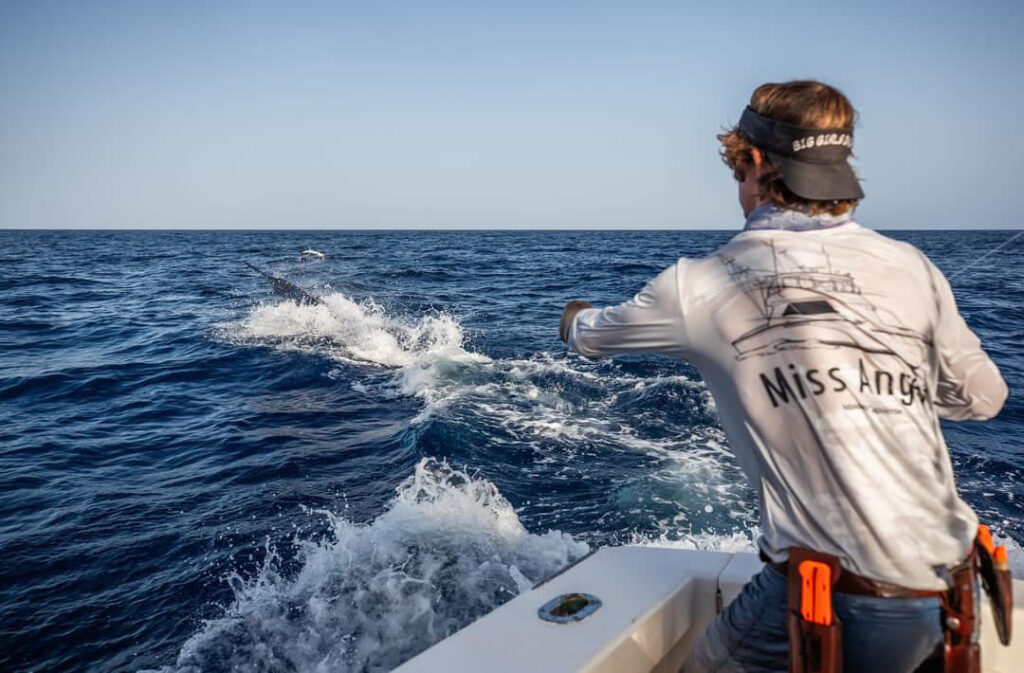Big Game Fishing Tips

Big Game Fishing Tips
Big game fishing is a thrill like no other. When you’re hundreds of miles from shore, the deep blue ocean stretching endlessly in all directions, something is humbling about connecting with a fish strong enough to bend steel, snap lines, and test even the most experienced anglers. This isn’t your average afternoon of casting and waiting. This is a battle between you and one of nature’s most powerful predators — victory depends on how well you’re prepared.
For those who venture to Cape Verde, big game fishing is more than a sport. The experience blends raw ocean energy with skill, timing, and patience. The region is well known for producing exceptional marlin, yellowfin tuna, wahoo, and dorado, drawing anglers from around the world who come not just to fish, but to challenge themselves in one of the Atlantic’s richest environments. Whether stepping aboard the seasoned boat Miss Angela or planning your first serious trip, these big game fishing tips will help you make the most of every second on the water.
Understand the Ocean Before You Step on the Boat
Before any hook is set or line is cast, you must understand the environment you’ll be fishing in. Big game fishing isn’t done in shallow bays or calm river mouths. It’s an open-ocean activity where conditions shift fast. Cape Verde is particularly dynamic because of its deep water shelves, warm currents, and sudden deep drops just minutes from shore.
Learning how current, water temperature, wind, and bait presence affect fish behavior is vital. For example, marlin are often found near underwater structures or along current lines where baitfish gather. Tuna may be spotted under birds or near floating debris, taking advantage of shade and feeding opportunities. Knowing where to look and why fish are there separates a lucky strike from a reliable pattern.
Work closely with your captain and crew. On a boat like Miss Angela, the team studies the ocean constantly. They know how to spot subtle changes that signal a shift in fish movement. Rely on that knowledge, ask questions, and stay involved in every part of the process.

Timing Can Be Everything
Choosing the right time is among the most underrated big game fishing tips. Fish migrations, feeding habits, and mood can all shift with the season. Blue marlin dominate the spring and summer months in Cape Verde, especially from March through July. These giants of the deep come close to the islands in pursuit of baitfish, and it’s during this season that anglers often find multiple hookups in a single day.
Tuna, wahoo, and dorado become the primary targets later in the year, especially from October to February. These months may bring cooler water temperatures, but are packed with action from fast, aggressive species. Planning your trip around the peak activity of the fish you want to catch is a key decision many anglers overlook.
Discuss the best windows with your charter if you have flexible travel dates. They can recommend the optimal time based on recent patterns, water temperatures, and previous seasons. Matching your trip to the fish you’re chasing will always increase your chances of success.
Train Your Body and Mind
Big game fishing may look relaxing at first glance, but the real work begins once the reel screams and a marlin hits the line. These fights can last from a few minutes to several hours. You’ll use your core, arms, back, and legs unexpectedly. It’s less about brute strength and more about technique, balance, and stamina.
Start preparing before you board the boat. Stay hydrated, eat well, and stretch before your trip. Wear light, breathable clothing and invest in polarized sunglasses and sun protection. Avoid dehydration at sea, especially under the Cape Verde sun, because it can sap your energy fast and affect your ability to fight when the moment comes.
Equally important is your mental strength. The ocean can be quiet for hours, then explode with activity. Staying alert and focused throughout the day is crucial. Many big game fishing tips are won or lost in moments when anglers drop their focus or aren’t ready for a fast-moving strike.
Know the Tackle You’re Using
On a serious fishing boat, gear matters. Rods, reels, hooks, line, and lures are all chosen for a specific reason. Understanding why you use a particular setup will help you react correctly during a fight. Heavy trolling tackle may feel intimidating initially, but it’s designed to match the power of the fish you’re after.
In marlin fishing, for instance, large conventional reels with heavy drag systems handle long runs and high-speed jumps. Tuna fishing may involve vertical jigging or live bait setups, depending on the water conditions. Knowing how to control the drag, adjust line tension, and maintain steady pressure is critical for keeping a fish on the line.
Before you leave the dock, talk to your crew about the gear. Let them walk you through the setups. On a boat like Miss Angela, you’ll use battle-tested equipment proven in hundreds of offshore fights. Take the time to understand it — not just to avoid mistakes, but to become a better, more confident angler.
Listen to Your Crew ,They’ve Seen It All
A common mistake among new big game anglers is trying to do everything independently. But the ocean is unpredictable, and big game fishing is not a solo sport. Captains and mates work together with precision because every second counts when a fish is hooked. Listening closely and following instructions during the fight is the best thing you can do to ensure a successful landing.
Your crew may ask you to move across the deck, change the rod angle, or adjust the drag mid-fight. These aren’t random suggestions they’re moves based on experience and a clear understanding of how the fish behaves. Trust them. Let their knowledge guide your actions, and you’ll be rewarded with better control, fewer line breaks, and a smoother fight.
Remember that the crew wants you to succeed. They’re invested in the outcome, not just driving the boat or handing you gear. Their reputation, and yours, is built on landing fish ethically, efficiently, and safely.
Know When to Apply Pressure and When Not To
One of the most technical parts of big game fishing is managing pressure on the fish. If you pull too hard at the wrong moment, you risk snapping the line or removing the hook. The fish may regain strength or head for structure if you’re too gentle. The key is balance and timing.
A good rule is to let the fish run when needed, and apply pressure when it slows down. Use the rod to lift and recover the line, then keep constant tension as the fish tires out. Don’t pump too high or reel while the fish pulls this can cause slack and allow the fish to escape.
Your captain may help maneuver the boat to reduce the fish’s angle or avoid obstacles. The deck crew will assist with reeling, guiding the line, and preparing for the final gaff or release. Staying in rhythm with them and trusting your gear is how you win the fight.
Respect the Fish and Celebrate the Experience
Big game fishing is about more than just trophies. It’s about connection to nature, to the sea, and to a moment that you and the fish shared in equal parts. Respect the fish, whether you release a giant marlin or land a tuna for the grill. Handle it carefully, follow ethical catch and release practices when needed, and treat every catch as special.
If you’re tagging and releasing marlin, your crew may work with conservation programs to track migration and behavior. Participating in this process not only supports the future of fishing but also gives your trip a deeper meaning. You’re not just catching you’re contributing.
Also, take a moment to enjoy the whole journey. The quiet sunrise before the lines go out. The sudden chaos of a hookup. The strength of the fish. The teamwork is on deck. The satisfaction comes when the rod finally rests and the story is yours to tell. These are the real reasons anglers return to Cape Verde again and again.
Final Thoughts: Big Game Fishing Tips
Every angler chasing big game dreams of that one perfect strike the marlin that jumps three times before sounding deep, the tuna that peels line and refuses to quit. But those moments don’t happen by chance. They’re built on preparation, skill, respect for the sea, and trust in your crew. These big game fishing tips are your foundation for success, especially in a place like Cape Verde, where the stakes and the rewards are high.
If you’re stepping onto a boat like Miss Angela, you’ve already given yourself an advantage. With professional crews, world-class equipment, and access to some of the Atlantic’s best waters, you’re putting yourself in the best position to succeed. Bring your focus, energy, and respect for the fish, and let the ocean do the rest.


